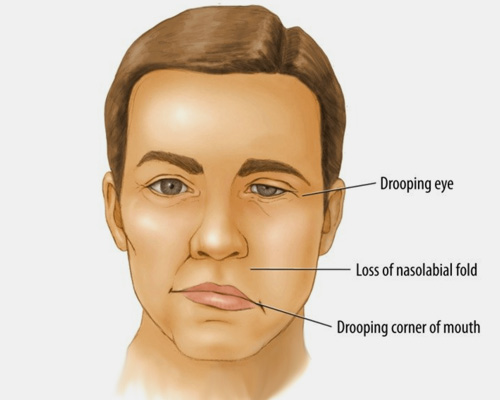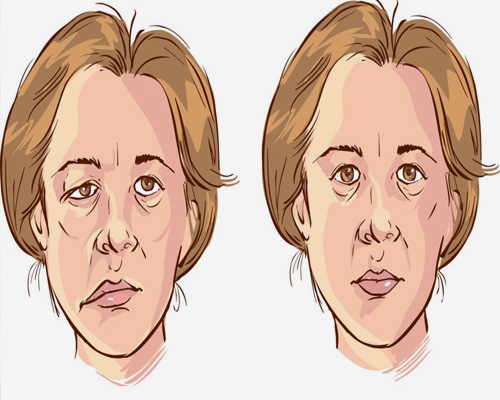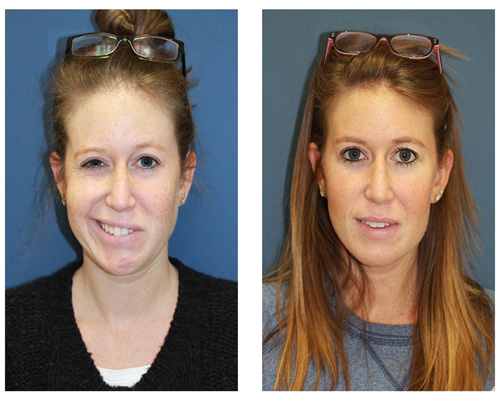Facial Palsy Causes?
Although the most commonly known cause of facial paralysis is Bell's palsy, there are actually many different causes of facial palsy, and treatment and prognosis vary greatly depending on the cause. Some of the main causes of facial palsy are listed below:
- Viral infections such as Bell's palsy and Ramsay Hunt syndrome.
- Surgical causes: for example during removal of acoustic neuroma or facial nerve tumour, or when operating on the parotid gland.
- Bacterial causes such as Lyme disease or following a middle ear infection.
- Neurological conditions such as Neurofibromatosis 2, or Guillain-Barre syndrome.
- Traumatic injury such as fractures to the brain, skull or face.
- Birth trauma: for example caused by forceps or facial presentation delivery.
- Congenital conditions such as an abnormal development of the facial nerve or muscle in the womb.
- Rare genetic syndromes such as Moebius syndrome or CHARGE syndrome.
- Stroke: although a stroke can cause facial palsy it is slightly different in that the problems are not caused by direct damage to the facial nerve. The paralysis in this case is caused by brain damage and the messages not being transferred properly to the facial nerve.
Facial Palsy Symptoms?
The symptoms of facial palsy are many and vary from person to person. The symptoms will depend on the cause of your facial palsy and here we discuss some of the more common symptoms experienced by people with facial palsy.
- Facial palsy normally affects only one side of the face although in rare cases it may affect both sides. It does not cause weakness in your arms or legs. If you experience weakness in your arms or legs as well as weakness on one side of your face, you should seek immediate medical attention. These symptoms grouped together may indicate a stroke.
- A complete facial palsy on one side of the face affects the brow, eye, cheek and mouth. This means the facial nerve signals that control movement in these muscles are not working. The face may appear flattened and movement may be lost.
- Symptoms may improve or worsen over time depending on the type and degree of facial nerve damage and the cause of your facial palsy.
- Some types of facial palsy will affect sensation including pain, as well as facial movement. This may mean that the nerve which is responsible for sensation (trigeminal nerve) has been damaged as well as the facial nerve.
- The facial nerve controls movement, tear production, saliva production and taste.
- Loss of sensation may mean you cannot feel your face when you touch it.
- Inability to blink or close the eye is a common symptom and needs prompt attention from your GP.



